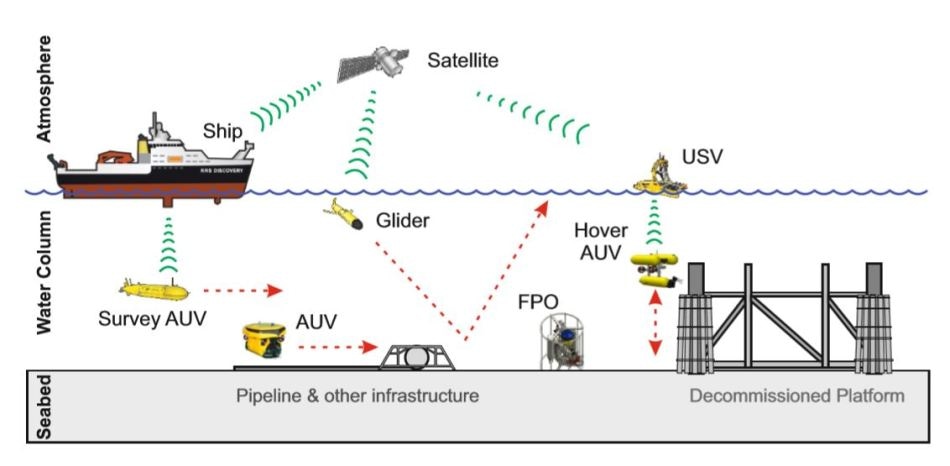Mar 13 2019
A forward-looking review, released by researchers at the National Oceanography Centre (NOC), shows how the environmental monitoring required for decommissioning oil and gas installations can be supported by means of marine robotic capabilities.
 (Image credit: National Oceanography Centre, UK)
(Image credit: National Oceanography Centre, UK)
The latest review demonstrates how autonomous platforms and sensors, which are already in existence, could possibly be used for assessing different types of marine environment faced at the time of decommissioning monitoring. Representatives from regulators, industry, and environmental managers were consulted to test and further improve this approach.
It is a well-known fact that decommissioning of oil and gas installations is a major business, with the projected costs surpassing 50 billion pounds in the United Kingdom alone. However, this business is also capable of affecting the marine environment. Hence, to protect the marine environment from these impacts, routine monitoring should be conducted to check for possible pollutants and their impacts on marine life.
Conversely, such an assessment poses a major difficulty, with more than 400 decommissioning programs implemented in the British part of the North Sea alone. This also entails huge potential costs, which can possibly reduce the regularity of monitoring, thereby increasing the danger of missing effects on the marine ecosystem when there is still time to tackle them.
In this regard, autonomous systems are already transforming the way scientific investigations and marine survey are being performed, enabling high-resolution data on large regions of the marine environment to be gathered much more rapidly and repeatedly than ever before. The expenses of such systems are being lowered constantly.
Industry and the government regulators are taking note of these new technologies. Expert syntheses, such as this, will be helpful in developing a more cost-effective but still rigorous approach for the future.
Dr Daniel Jones, Study Lead Author and Scientist, National Oceanography Centre.
The NOC’s forward-looking review was the main output from the “advanced monitoring of marine infrastructure for decommissioning” project funded by the UK Natural Environment Research Council (NERC).